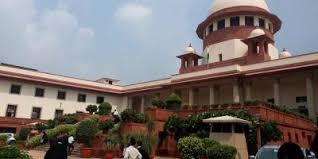Was a school teacher at the Railway Higher Secondary School (Para 1)
The appellant, fearing further creation of artificial breaks filed an application being O.A. No. 209 of 1990 before the Central Administrative Tribunal (for short ‘the Tribunal’) Guwahati Bench. He prayed for setting aside of the letters of termination dated 09.06.1990 and 19.09.1990 and also prayed for regularization of his service and for salary during the period of breaks. (Para 3)
After subjecting the appellant for screening, by an order of 02.01.1998, the appellant was appointed as Primary Teacher (Bengali Medium) in the Railway Higher Secondary School, Alipurduar Junction against an existing vacancy. (Para 9)
The grievance was that firstly, the appellant should have been absorbed in the post of Assistant Teacher instead of being absorbed as a Primary Teacher with admissible continuity of service in the pay-scale (Para 11)
Cases and the appellant’s case being one of regular absorption, no continuity of service can be given to him. Holding so, the Central Administrative Tribunal, Calcutta Bench dismissed the application of the appellant. (Para 15)
The High Court once again, relying on the order of this Court, held that the benefit of continuous service was specifically rejected in the case of the appellant. So holding, the High Court upheld the order of the Central Administrative Tribunal, Calcutta Bench. (Para 16)
We are of the view that the appellant’s claim for absorption as Assistant Teacher in the Higher Secondary Section in the pay-scale of Rs.5500-9000 is not tenable. (Para 29)
The appellant however cannot be denied continuity of service under the Master Circular dated 29.01.1991 read with the orders of this Court in Smt. Jayasree Deb Roy (Dutta) (supra) [C.A. No. 9424 of 1995] and the order in the appellant’s own case i.e. C.A. No. 3557 of 1996 dated 15.02.1996. This is a fresh cause of action, which has arisen in view of his absorption on 02.01.1998, subsequent to the culmination of the earlier round of proceedings. (Para 37)
A reading of the above clearly shows that on completion of three months of continuous service as substitute teacher, the incumbent acquires temporary status. It is also clear that substitutes who have acquired temporary status should be screened by the Screening Committee and not by Selection Board. It is also clear that under Clause 5.11, gaps which may occur in service of substitutes between two engagements should be ignored for the purpose of temporary status on completion of four months service and in case of teachers, on completion of three months service. Further, it is clear that the date of appointment should be the date on which they attained temporary status in the event they are regularly absorbed. As is clear from the dates mentioned hereinbelow that the appellant having acquired temporary status on 04.03.1990 is entitled to count his service from 04.03.1990 in view of his absorption in the service as a primary teacher on 02.01.1998. (Para 40)
The appellant being identically situated with the other absorbees in the order of 02.01.1998 could not have been discriminated and denied the benefit of his service from 04.03.1990 to the date of his absorption. (Para 42)
The appellant has superannuated now. The pay of the appellant shall be re-fixed after granting continuity of service with all consequential benefits in accordance with Clause 6 of the Master Circular dated 29.01.1991. All the necessary increments and allowances due on that basis also should be granted. The retrial benefits also should be consequently reworked. The unpaid arrears amount be paid to the appellant with six percent interest from the respective dates the various amounts fell due. Let the payment be made within eight weeks from today. (Para 45)
SUPREME COURT OF INDIA
2023 STPL(Web) 274 SC
[2023 INSC 836]
Samir Kumar Majumder Vs. The Union Of India & Ors.
Civil Appellate Jurisdiction Civil Appeal No. 6027 of 2014-Decided on 20-9-2023
https://stpllaw.in/wp-content/uploads/2023/09/2023-STPLWeb-274-SC.pdf







